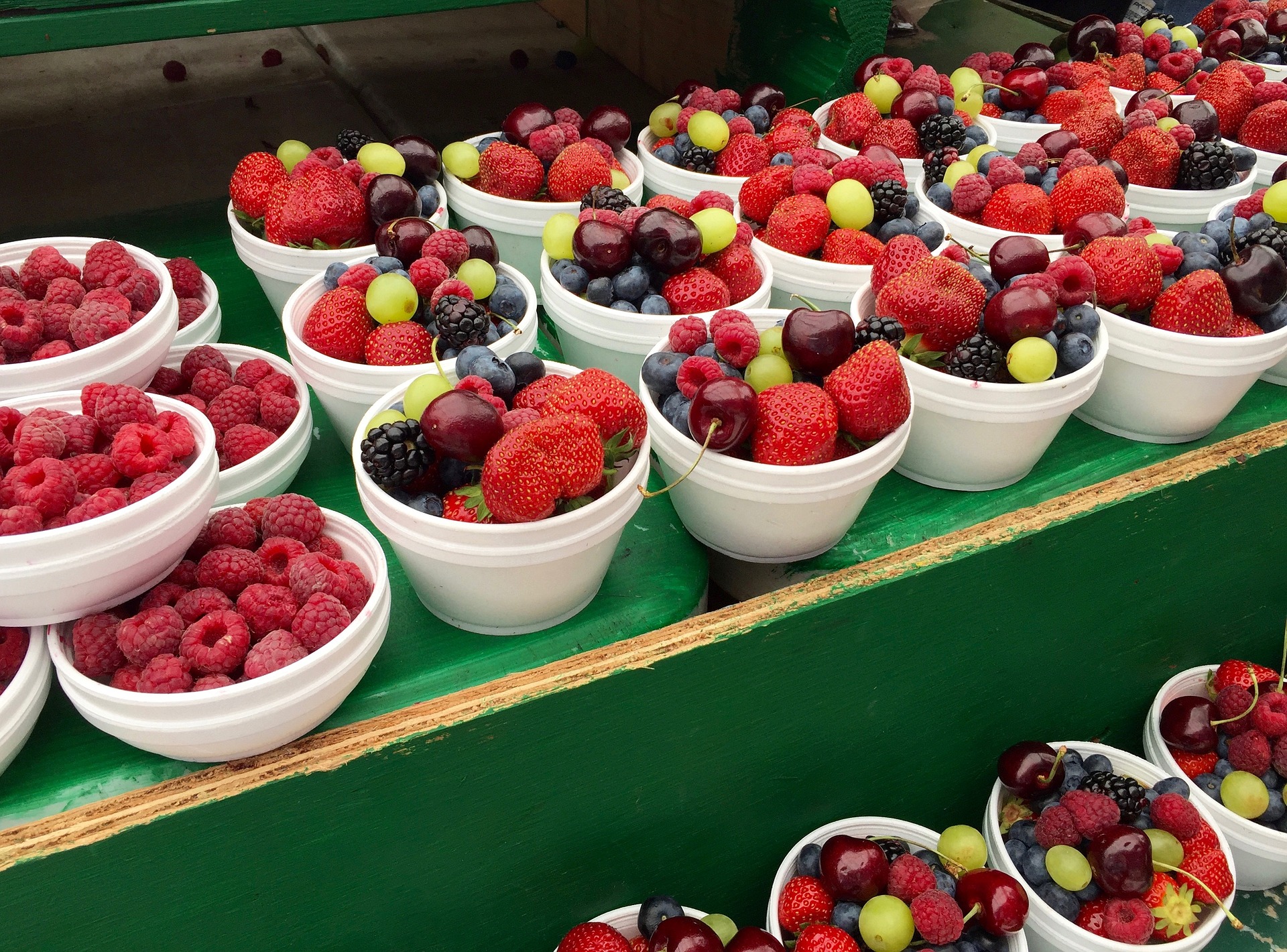There is a big trend at the moment to move to a more plant-based diet. Even if it is something that you do part-time, or for the majority of your meals, there are a number of benefits. However, you might be wondering where to start, especially if you are taking this step to improve your health and overall well-being.
Eating a plant-based diet can improve your health, boost your energy levels, and help to prevent a number of chronic diseases. There is some stellar evidence from scientific research that shows a lot of chronic diseases can be controlled, prevented, and even stopped or reversed when eating a diet that is plant-based and whole-food based. Not only that, but you can improve your fitness levels, reduce any inflammation, and have more control over your health. From bodybuilding to marathon running, everyone can benefit from a plant-based diet.
There are many reasons to make the switch, but what does it all mean? Here is a beginner’s guide to eating a plant-based diet, and the kinds of foods that you should expect to eat.
What do whole-food and plant-based mean?
If you want to know what to expect, then you need to really understand what it is all about. A whole-food plant-based diet is one that meets your nutritional needs, all by focusing on foods that are completely natural, unprocessed in most cases, and is free from any animal products. When a food is described as a whole-food, then it means that it is a food that hasn’t been processed heavily, meaning it isn’t refined. For a food to be plant-based, it means that it is a food that is from plants and is natural, and not from an animal. So it would be a diet that doesn’t include things like eggs, honey, or milk.
The best foods to eat
If you want to see the benefits of eating a plant-based diet, then you need to make sure that you are eating a range of foods that are available to you. Like any kind of meal plan or diet, it needs to be planned out to make sure that you are getting what you need, in order to best look after your health. Some of the main foods and categories of foods that you can eat are listed below.
Fruits
As you can imagine, any kind of fruit goes when eating plant-based. They are grown naturally and are full of vitamins, minerals, and other nutrients that you need, as well as essentials for a varied diet such as antioxidants, fiber, and potassium. So from apples to grapes, passionfruit, and bananas, there are so many different fruits that you can enjoy.
Vegetables
As with fruit, you are unlimited when it comes to the vegetables that you can eat. There are so many tasty ways to eat vegetables, and as they have fiber and iron, they can be a great benefit to you. Eating foods like pepper, lettuce, kale, spinach, corn, and peas is all good! You can also look to get creative with the vegetables that you eat, such as making pizza bases with cauliflower.
Tubers
Tubers, if you’re not aware, are mainly made up of root vegetables. This includes foods like sweet potatoes, white potatoes, carrots, parsnips, beets, and so on. As with other veggies, these can all be used in their traditional ways, as well as used differently, to make sure that you don’t miss out on anything tasty. For example, sweet potatoes can be a great ingredient for brownies, and beetroot is a great chocolate cake ingredient too.
Whole Grains
Whole grains are a must in a plant-based diet as they help to bulk out a lot of the meals that you have, and provide you with protein and fiber. Of course, being plant-based, it is best to look for these kinds of foods that are unrefined, such as having brown rice and wholewheat pasta, rather than white versions. Barley, oats, cereals, grains, millet, and quinoa are also great foods to get plenty of when eating plant-based. Even something like popcorn, popped at home, is a whole grain, so you can still eat the foods that you enjoy.
Legumes
Legumes are a great food group, providing you with the majority of your protein when eating plant-based. So it is important to not forget about it. Legumes mean eating beans of all kinds of varieties, as well as lentils, pulses, and so on.
When you are eating a plant-based diet, there are a range of other foods that you can enjoy too. This includes nuts and seeds, tofu and tempeh, and other soy-based products. The idea is to get creative with how you use the foods that you have. For example, using oats or nuts, you can make your own plant-based milks, and you can still enjoy cakes and bread, just using whole grains rather than refined grains.
Peptides
A number of people can confuse peptides with proteins, as they are both made up of amino acids. Both are needed for a plant-based diet, but what are peptides and what do you need to learn about peptides when eating this way? Peptides tend to have fewer amino acids compared to proteins, but they do occur naturally in foods. They have a number of health benefits, which is why they can be taken as a supplement. For improved health overall, as well as improved skin, or when wanting to build muscle, peptides are important in your diet. When eating plant-based, the best sources of peptides will be beans and lentils, soy, oats, flaxseed, hemp seeds, and wheat.
B12
One thing that critics of eating this way will say, is where can you get vitamin B12 from, as it is normally seen as a vitamin that comes from animal products? The fact is that whole plant foods do contain all of the essential nutrients that you need, with B12 being the only exception. There are ways to get B12 into your diet, though, from using foods like plant-based milks, as well as breakfast cereals. This could be a supplement to think about getting, though, as the majority of people, plant-based eating or not, are deficient in B12.
The benefits of eating this way
As mentioned above, there are a number of benefits to eating a plant-based diet, including improving your overall health and well-being. The good news is that the benefits of eating this way are all supported by research and by science. You just need to make sure that you are achieving a good balance when eating these foods, rather than only eating one food group and not the rest. Some of the major benefits of eating this way are:
- Weight management
Generally, it has been found that people who eat a diet that is plant-based do tend to have healthier weights and be more lean than people who don’t eat this way. Eating a plant-based diet can help you to maintain your weight, as the foods that you are eating are not full of refined sugar and unhealthy fats. Your body will use every element of plant-based foods, rather than having something refined that is made up of some junk. As a rule, it can be a good way to maintain your weight, and help you to stay a healthy weight, without having to think about counting calories.
- Prevent disease
When you eat a diet that is plant-based, it can help with the majority of health concerns that you have, and can help to halt and even reverse things like type two diabetes. You can help heart disease and high cholesterol problems with a plant-based diet, and help any inflammation. If you’re recovering from an injury or an operation, for example, then eating this way could help to speed up your recovery.
- Better for the environment
Your reasons for wanting to eat this way will vary. Some people will want to eat this way because of animals and not wanting to eat animals. Some people will be looking at it from a health perspective and looking to improve chronic illness or maintain a healthy weight. However, another angle to think about when it comes to plant-based eating, is because you will be able to have a lighter footprint on the environment when you eat this way. A diet that is plant-based puts much less stress on the environment, and can be a more sustainable way of eating. For example, cows eat plants, and then humans eat cows. But why do you need the ‘middlemen’ of cows? Just get straight to eating the plants yourself.
There are a number of places where you can get ideas and recipes for plant-based foods, and there are many plant-based protein powders and supplements, so you can still achieve the goals that you have and get all the nutrition that you need, when deciding to eat this way. Do you think that you will give it a go and try this way of eating? It would be great to hear what you think.




